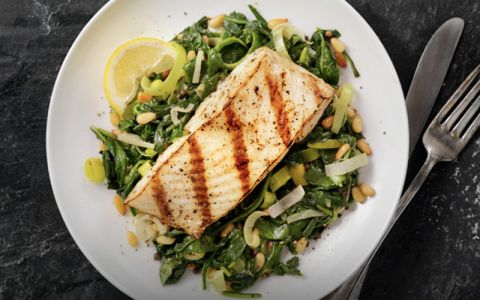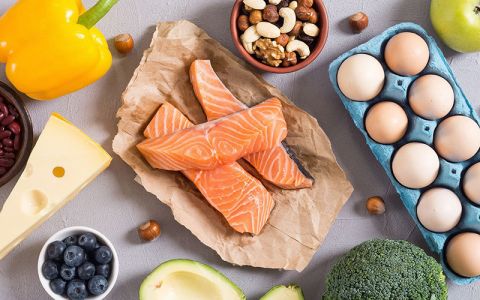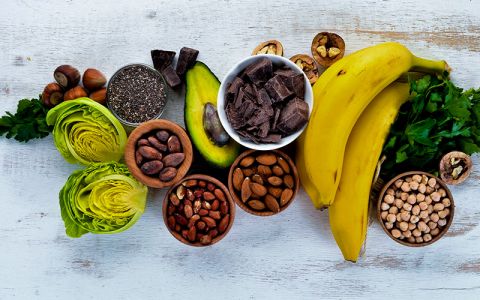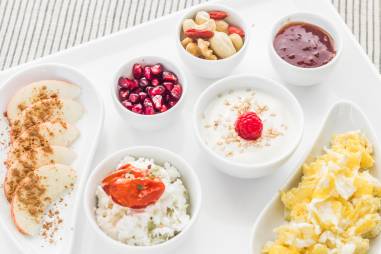Eat yourself happy

Happymakers
A shortage of magnesium and vitamins B & D in particular can lead to low mood. So, if you run out of beans before the day is far from over, or can’t name the last time you whistled a cheery tune, then consider your vitamin and mineral intake carefully.

Get tested
There’s always the quick-fix option of an all-in-one vitamin supplement. But then again, an excess in certain vitamins (A in particular) won’t do you any good either. A better approach is to take a close look at your eating habits. If you notice yourself often feeling lethargic or despondent, get your levels tested by a doctor or dietician. Any deficiencies can be corrected with the right diet. (Or failing that, the right supplements.) But what should you be eating to boost which levels? Read on to check whether you’re getting enough of these mood boosters in your diet.

Vitamin B: the happy vitamin
There is a strong connection between depression and B vitamins – including B6, B12, B1, B2 and B9 (the last three also known as thiamine, riboflavin and folic acid). A study among older women with severe depressive feelings pointed out that no less than a third of the subjects were deficient in vitamin B12. The B-family of vitamins provides energy, combats stress and promotes a sense of wellbeing. Bonus: nice hair and nails.
- Animal sources: high sources of vitamin B are poultry, fish, eggs and milk.
- Plant sources: Dark green vegetables such as kale, bananas and whole grains.

Vitamin D: the sun vitamin
In addition to lifting your mood, vitamin D also aids calcium absorption for strong bones and teeth. The sun is the best and a vegetarian source of vitamin D, but given that we are spending so much of our time indoors and taking into account the potential of the sun’s UV rays to cause cancer, vitamin D deficiency is more common today. If your disposition isn’t so sunny, 15 minutes of sun a day is all you need to boost your vitamin D levels and your mood. Bonus: aids weight loss due to being an appetite suppressor.
- Animal sources: whole eggs, salmon, swordfish, milk.
- Plant sources: chantarelle mushrooms
- Star source: sun

Magnesium: the anti-depressant mineral
Researchers compared the effects of magnesium with those of selective serotonin reuptake inhibitors (SSRIs), a form of antidepressants. After just two weeks, those with mild to moderate depression showed a significant improvement. What’s more, this super mineral fights inflammation, regulates blood pressure and is essential for muscle and bone growth. If you decide to take magnesium, don’t pick up just any. Consult a specialist to make sure you’re taking one that’s right for you and that can be properly absorbed by the body.
- Animal source: salmon and beef.
- Plant sources: Dark chocolate (minimum 75% cocoa), seaweed, pumpkin seeds, almonds, cashew nuts, peanuts, spinach, raisins and broccoli.

In balance
Taking care of yourself by eating a balanced diet and getting enough sleep and exercise is sadly no guarantee for happiness. There are many other life factors that affect your sense of happiness. But in the case of mild to moderate depression, it’s definitely worth checking whether or not you’re getting enough of these happymakers on board. After all, if you’re unbalanced, you’re bound to feel less happy and have less energy. And for those whose depressive feelings are a direct result of a vitamin or mineral deficiency, in most cases, these feelings will vanish once the required levels have been reached. So, eat healthily and enjoy your food!

 NL
NL BE
BE













